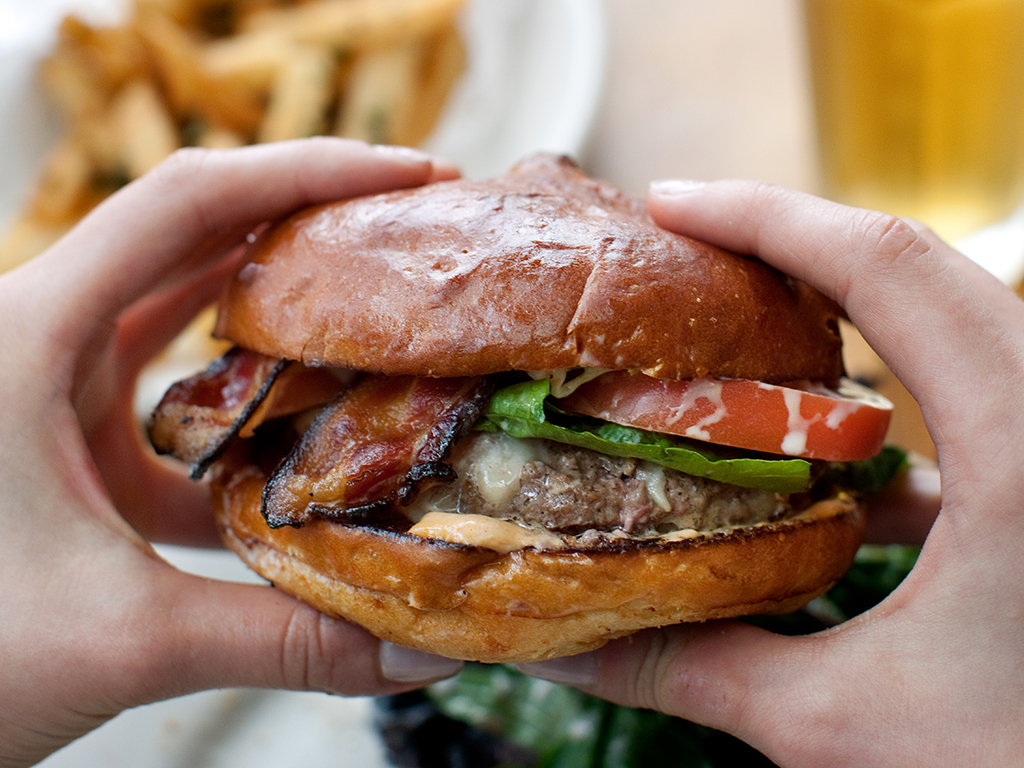No one likes the idea of going on a diet because it usually means having to cut down on food intake. But some people actually do the opposite to lose weight — that is, they eat more — and they swear it works.

It’s called reverse dieting or periodic feeding and it’s favoured by bodybuilders who believe it works to kick start a stalled or plateaued metabolism.
WATCH BELOW: How to survive on a vegan diet

Most recently, celebrity personal trainer Melissa Alcantara, who counts Kim Kardashian among her clients, has posted her reverse dieting journey to social media, tracking the success she’s experiencing with the eating plan.
(Warning: graphic language)
While there’s no question that whatever Alcantara is eating is working for her and her physique, nutrition experts are reluctant to lend much credence to the concept of reverse dieting, mainly because there’s scant scientific evidence behind it.
“The crux of the idea is that when you cut calories and lose weight, your hormones (like leptin, which is responsible for appetite control) change, and as your body shrinks it adapts to expending less energy both at rest and exercise,” says Andy De Santis, a Toronto-based registered dietitian. “The result is that your metabolism slows down, making it a challenge to maintain weight loss.”
READ MORE: What is the low-FODMAP diet and who should do it?
In theory, he says, reversing the diet and consuming more calories will restimulate your metabolism and positively affect hormones so that the next time you go back to cutting calories, you’ll lose weight more effectively.
However, any reports of having success on this diet have been anecdotal. There isn’t enough scientific evidence to back it, De Santis says.
In a study published in the Journal of the International Society of Sports Nutrition that looked a metabolic adaptation of weight loss in athletes, researchers at the University of North Carolina at Chapel Hill concluded that despite some evidence that reverse dieting can be successful, more research is needed.
“In theory, providing a small caloric surplus might help to restore circulating hormone levels and energy expenditure toward pre-diet values,” the study states. “Ideally, such a process would eventually restore circulating hormones and metabolic rate to baseline levels while avoiding rapid fat gain. While anecdotal reports of successful reverse dieting have led to an increase in its popularity, research is needed to evaluate its efficacy.”
- Invasive strep: ‘Don’t wait’ to seek care, N.S. woman warns on long road to recovery
- ‘Super lice’ are becoming more resistant to chemical shampoos. What to use instead
- Canadian food banks are on the brink: ‘This is not a sustainable situation’
- Is home ownership only for the rich now? 80% say yes in new poll
READ MORE: Low-carb and high-carb diets associated with early death, study says
Even if someone decides to test the theory, how to go about doing it is another guessing game, De Santis says.
“Because it’s not a well-studied phenomenon and it’s not based on guaranteed science, it’s arbitrary how many calories a person will add to their diet. If you ask 20 people, you’ll probably get 20 different answers.”
In Alcantara’s case, with the help of a nutrition professional, she’s adding 100 calories to her diet in periodic increments, but that’s a plan that is uniquely tailored to her nutritional and physical needs.
The other thing De Santis stresses about the reverse diet is that it doesn’t give you carte blanche to get those calories from any food you want — it involves eating more of the foods you’re currently eating to achieve or maintain weight loss. So, no, this does not mean you can add a daily cheeseburger to your diet.






Comments